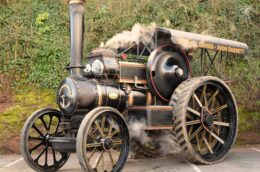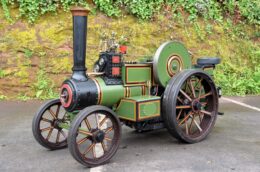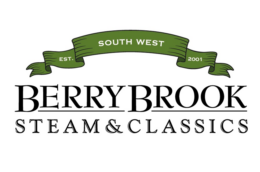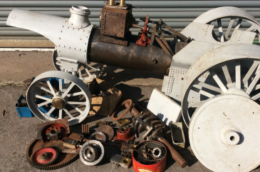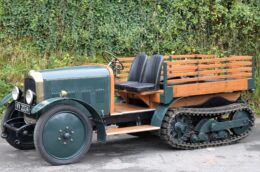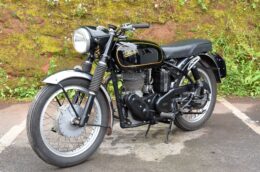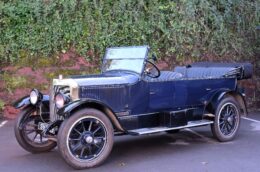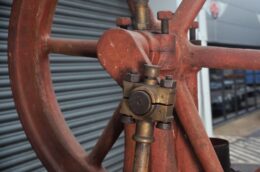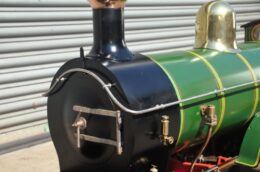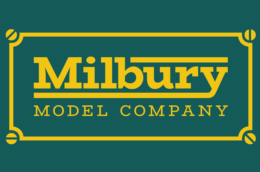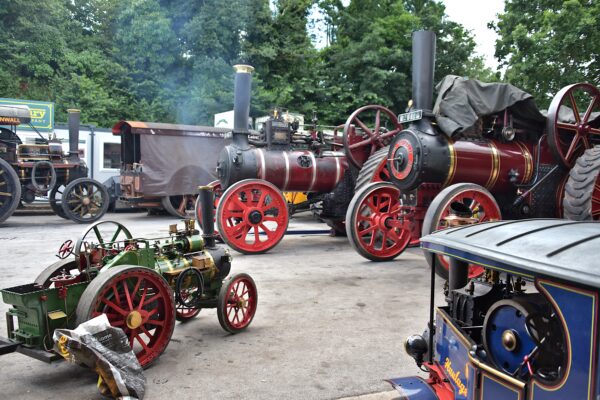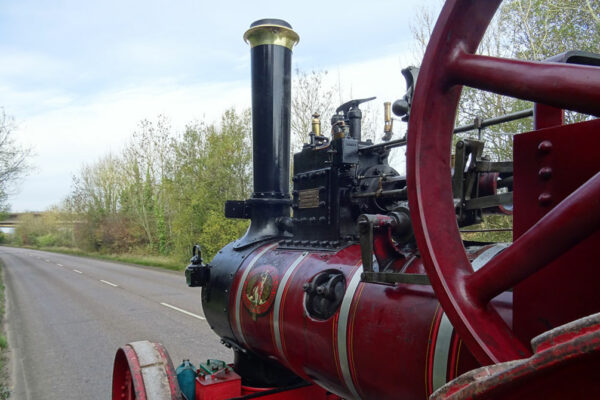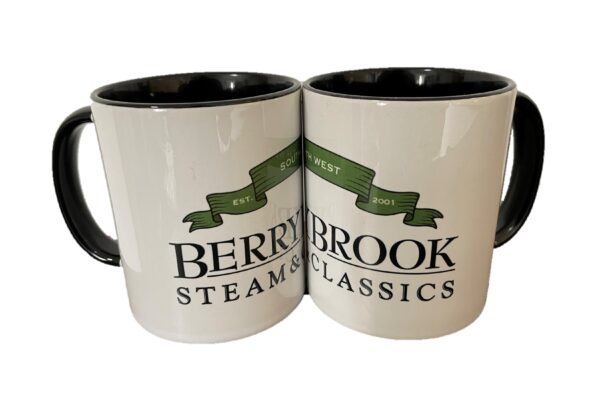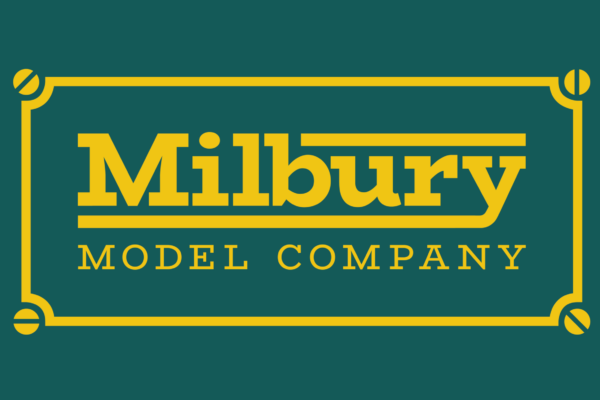FAQs about Traction Engines
Q: Do you need a licence to drive a traction engine on the road
(Full size or miniature)?
A: A traction engine of any size can be driven with a B licence, with the exception of the road roller which requires the G category. The only limitation to size will be the insurance, so make sure you talk to your insurance company first.
Q: What were miniature traction engines used for? Did they have a purpose?
A: This is one of my most frequently answered questions at the shows, and I must answer with the simple fact that miniature traction engines are, by in large, very capable toys. They are large-scale, contemporary models of a late 19th century, early 20th century design. Don’t be mistaken however, many have just as much character as many of the full-size counterparts, require just as much care and dedication from their owners and are just as capable. They also demand some relatively high figures value-wise, as discussed below. They can be legally driven on the road and have just as much holding at the shows as the full-size traction engines. The main difference is the size and, of course, the historic provenance of the full-size traction engines, which is why they demand the greater prices.
Miniatures have become popular with individuals who do not have the facilities to store, transport or work on a full-size traction engine. 4 inches to foot (4″ scale) is a common scale and usually weigh between 400kg and 1000kg, making them perfect for storage in the garage and transporting behind a car/in a van. The decision on whether to buy a full-size traction engine or which size miniature to buy comes down to personal circumstances and everyone has a different set-up. If you would like to know more about the differences in ownership, feel free to give us a call on 01392 833301.
Q: Is there a minimum age before you can start learning to drive one?
A: They can be driven legally on the road at 17 with a B licence.
Q: Is there a maximum age limit?
A: No but standard rules for car drivers apply
Q: How do steam engines work?
A: Very basically water in a boiler is heated by fire until steam is produced. This steam contained in the boiler under pressure is passed through a valve mechanism into the cylinder where it expands and alternately acts upon both sides of a piston. The movement of the piston is transmitted via a piston rod to a crosshead where another rod (the connecting rod) is attached to a flywheel where the straight line movement is converted into a reciprocal movement.
Q: What is the correct name for them? I.e. steam engines, traction engines, locomotives?
A: The term Traction Engine is a generic one used for all road going steam engines. However, there are agricultural traction engines which as the term implies are used mainly on agricultural duties. Road locomotives are used as road haulage engines. Showman’s engines are used for hauling the fairground rides from town to town and then used to power the rides via a belt driven generator. Steam rollers are used for rolling in hardcore and packing and then tarmac for road building. Steam tractors tend to be small engines designed for one person operation. There are also steam wagons or lorries.
Q: In what sizes do the miniatures come in?
A: Miniatures vary from ¾” to the foot through anything up to 10″ to the foot. The most common sizes are 3″, 4″ or 6″ to the foot.
Q: Do you need any special skills to own a miniature?
A: A certain amount of engineering knowledge is required. The easiest way to learn these skills is to join a model engineering evening class at the local FE College – most colleges run these courses. Joining a local model engineering club will also be of great benefit as well as the fun of being with like minded people.
Q: How much does it cost?
A: Prices for miniatures are a relatively easy market to judge as it is a comparatively (to the full-size engines) fast market so we have lots of data to judge our valuations on. Prices vary according to the scale of the engine, but they can start from around £1,000 and go up to around £100,000.
The prices for full-size traction engines is a much more debated issue and dependant on a whole range of factors, so therefore must be determined on an individual basis. Roughly speaking however, rollers tend to make slightly lower prices (£25,000 to £60,000), general purpose traction engines slightly more (£60,000 to £175,000), road locomotives more again (£200,000 to £600,000) and showmans’ engines across the upper end of the board (£300,000 to £1 million plus). This is a very rough gauge and no doubt each number is up for debate; however this is where the market typically seems to orientate itself. I have also only mentioned four of the common shapes of Traction Engine, there are a whole range of shapes and sizes (Tractors, Waggons etc) which fit into the picture too.
Don’t forget that this discusses the actual buying costs. Every traction engine needs work at some point (as I am sure any engine owner, full size or miniature, can attest to!) so these costs need to be considered at point of purchase.
Q: How are all steam engines tested? Do they need a sort of MOT?
A: All traction engines used in public spaces are subject to boiler test; they are a pressure vessel at the end of the day! Regardless of whether your engine will be used in public or otherwise, we would always recommend having a boiler test carried out by a suitably qualified professional for your own safety.
It is typically a two-part procedure and there are a few options depending on your traction engine. For larger scale and full-size steel boilers, one would have to follow the ‘commercial’ ticket route and organise an inspection with an independent inspector. Typically, they would carry out a 10 yearly hydraulic examination (with the cladding and fittings remove for barrel and stud inspection) and then carry out a steam and internal examination every 14 months. These time scales are very much down to the inspector’s discretion and, if you opt to change inspectors part way through the 10 year period, there is no guarantee the new inspector will honour the existing hydraulic ticket. The key is making sure you are proactive and talk to your chosen inspector regarding the safe use of your traction engine.
The second scheme of test is what is referred to as a ‘club’ ticket. These tend to be more common on the smaller scale and copper boilers (it varies according to your individual club). Clubs often have a delegated inspector and will include testing as part of membership. Timescales vary but a small steel or a copper boiler will typically be issued with a two year hydraulic (without removing the cladding as required by the commercial ticket mentioned above) and a 12 month steam and internal test.
Boiler testing is certainly a complexity but once understood, you will be able to decide the best route for your traction engine and enjoy using it safely.
Q: Do they have to pay for Vehicle Excise Duty (road tax)?
A: Steam vehicles are road tax exempt; however it is a legal requirement to tax the vehicle annually, similar to taxing a historic vehicle.
Q: How are they insured and with whom? Is it expensive?
A: There are specialised insurance brokers that again advertise in the steam preservation magazines. Prices on miniature engines tend to be cheaper than the family car.
Q: Are there any clubs for steam engine enthusiasts? And magazines?
A: The National Traction Engine Trust (click here for their website) caters for all road steam enthusiasts including the steam apprentice club ( S A C ) which is an excellent “apprentice” scheme. The Road Roller Association deals mainly with rollers as the name implies. There are also a number of local model engineering clubs around the country that can be very beneficial to steam enthusiasts whether they own an engine or not. As previously mentioned magazines specialising in steam traction engines include Old Glory, Vintage Spirit, Model Engineer and Engineering in Miniature. Online, we support a forum called Traction Talk. This forum is popular with the community and has amassed a huge amount of knowledge and information over the years, so has become a fantastic resource for working on traction engines.

